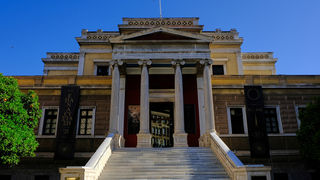“START – Create Cultural Change” Programme 2020
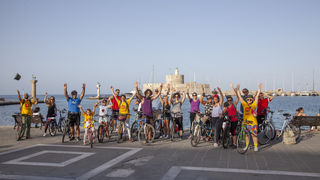
The “START – Create Cultural Change” is a capacity building and fellowship programme for aspiring cultural managers in Greece. The programme supports young creative minds to kick-start their cultural initiatives with the purpose of generating positive social impact in their local communities.
The START programme consists of three consecutive phases in Germany and Greece, enabling START fellows to develop innovative ideas into independent cultural initiatives and acquire professional skills.
The programme includes the following phases:
- Phase I: A 3-month capacity building programme in Germany for 30 selected fellows (September – November).
- Phase II: Implementation of the cultural initiatives and a coaching scheme for 15 selected fellows for a period of six months (December – May).
- Phase III: “Scaling Awards”, awarded to exemplary programme initiatives, for a period of one year (June onwards).
In 2020, the programme’s fifth and last cycle was implemented; it concluded with the online granting of the “Scaling Awards” by the John S. Latsis Public Benefit Foundation for the fourth consecutive year. The fellows distinguished in 2020 were:
- Alex Dimitriou, for the “Sazman” initiative: focusing on cycling culture, and inspired by the feminist makerspace movement, this initiative seeks to create feminist communities sharing a common passion for cycling and the environment, starting in Rhodes and Athens. Through this activity, people with a common background and interests have the opportunity to meet, network, express themselves and undertake creative endeavours as members of a team within a safe and inclusive environment. This initiative includes the organisation of cycling tours and movie screenings, along with the conduct of experiential workshops based on Do-It-Yourself (DIY) philosophy and within the feminist context, where participants are given the opportunity to develop skills in bicycle repair, carpentry, silkscreen printing, blacksmithing, etc.
- Emmanouil Levedianos, for the “CLOUDS” initiative: the objective of this project is to reconsider the concept of public space and pursue a co-design and provision of appropriate infrastructure to mobilise new ideas and actions. Various civil society groups, led by the LUDD workshop, collaborated to develop a diverse, modular-changing open architecture system for the construction of pop-up structures to support and facilitate social and cultural activities, such asexhibitions, workshops, screenings, meetings, festivals, etc. The aim of “CLOUDS” is to constitute both an intervention within the urban landscape and a meeting place connecting all stakeholders in a collaborative social network, enhancing their capacity to self-organise and their sense of belonging to the city, all while encouraging active citizenship.
- Maria Stroumpa, for the “kookoonari” initiative: this project seeks to convert the 10th Nursery School of Komotini into the first school with zero waste production in Greece (Zero/Low Waste School). During the project, through artistic and experiential workshops and participatory educational activities, both the school and the local community were informed about their ecological footprint, while getting acquainted with and trained in the principles of Zero Waste philosophy. The “kookoonari” project aspires to help the “winds of change” blow in other schools and social groups around Greece, helping more and more people transition into active citizens interested in environmental protection and sustainable development. In the framework of this initiative, the first handbook with practical instructions for setting up a zero-waste routine has been created; it is available online for free. The programme was implemented by the Robert Bosch Stiftung, in cooperation with the Goethe-Institut Thessaloniki and the German Federal Association of Socio-Cultural Centres (Bundesvereinigung Soziokultureller Zentren e.V.) and it was supported by the John S. Latsis Public Benefit Foundation and the Bodossaki Foundation.
- Throughout the 5 years of the programme’s implementation, a total of 72 cultural initiatives and 150 aspiring cultural managers from 22 Greek cities were supported.
- More than 25,000 citizens from local communities throughout Greece participated in innovative activities implemented under the programme.
- 42 speakers from Greece, Southeastern Europe and Germany participated in the “Unlearning Talks” series of virtual dialogues, organised during the final phase of the programme.
“Ideas are always there, they are abundant, and what they need is a push. And it is truly beautiful to be able to implement even one single idea with some support, not only in financial, but also in accounting, organisational, or even psychological terms. This is exactly what ‘START’ did. I saw my idea come to life, and people getting involved. I felt fulfilled and deeply moved, with no insecurity about how to proceed. The Scaling Award has come as a second push to broaden my vision and help it expand in scope. Our little Sazman is growing and looking forward to new adventures with cycling tours, DIY constructions and its own feministic makerspace.”
Alex Dimitriou
Founder, Sazman
“As a ‘START – Create Cultural Change’ fellow, I realised the existing need for such programmes which provide active citizens with the opportunity and support to contribute with their projects to a better society in the context of cultural management. Having a vision for ‘Zero Waste Schools’, we managed, through the ‘kookoonari’ project and the network of collaborators created, to educate the children, parents and teachers at the 10th Nursery School of Komotini about Zero Waste principles and ways in which they can reduce their school waste. This would have been difficult to achieve without the continuous guidance offered by the team of ‘START’.”
Maria Stroumpa
Founder, kookoonari
“The ‘START’ programme enabled us to contribute, in our own way, to the restoration of quality in the urban space. The infrastructure and tools we have developed can empower local communities by giving voice to unrepresented and marginalised social groups. But the most important thing is the new collaborations and the determined social network created. The CLOUDS network can ultimately enhance social innovation and active citizenship, but also upgrade urban institutional policies around public space. Through the Scaling Award and the success of this second phase, our work and vision continue. We propose new ways for bottom-up production of a city, where open dialogue, solidarity and creativity are collectively integrated into the public sphere, leading to new models of city management inspired by practices of the commons.”
Emmanouil Levedianos
Founder, CLOUDS
GRANTS
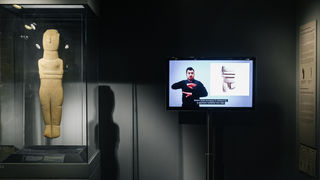
Creation of sign language video
Museum of Cycladic Art
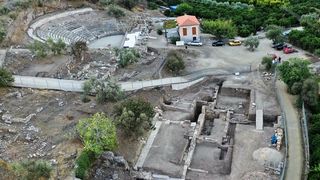
Programme for the Restoration and Promotion of Monuments in Ancient Epidaurus 2021
NPO ''ASCLEPIADES''
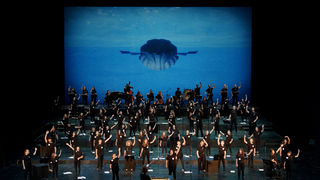
Interdisciplinary Educational Programme
Greek National Opera
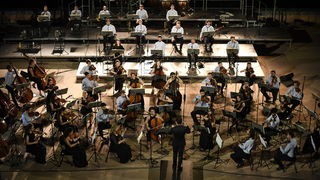
Musical Performances & Educational Activities
Greek Youth Symphony Orchestra
